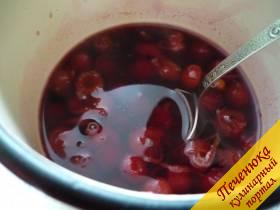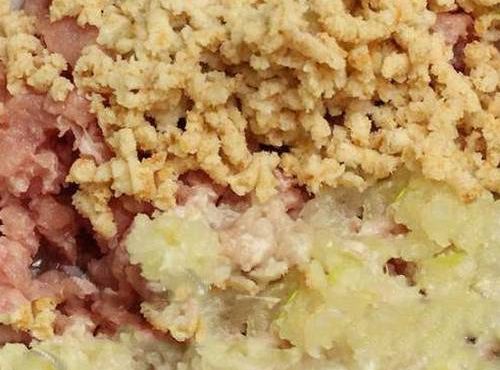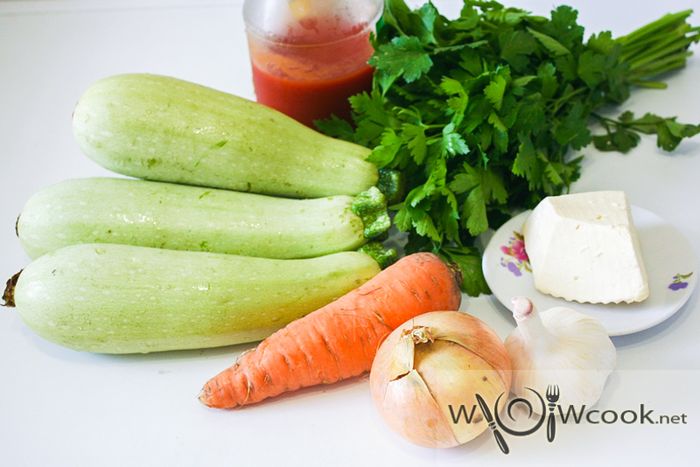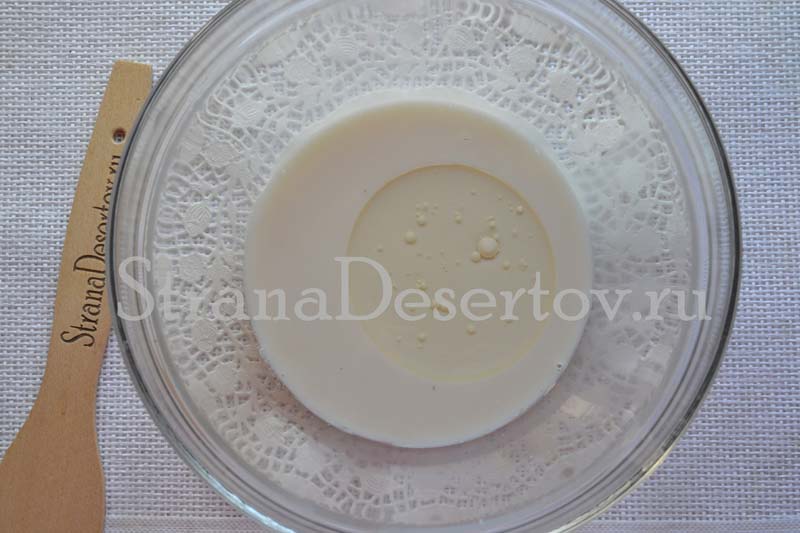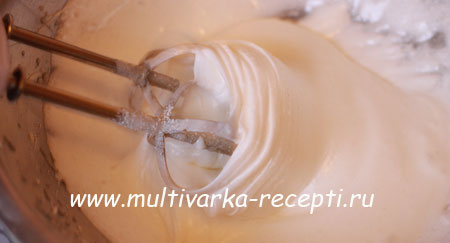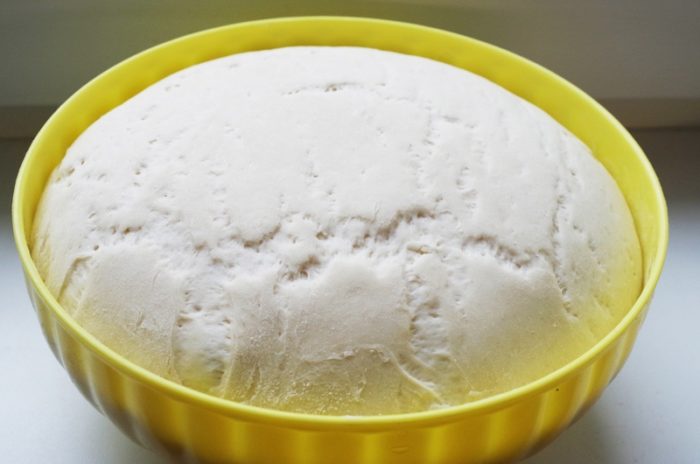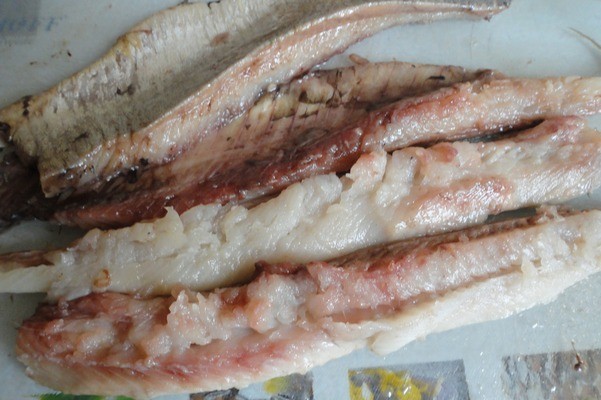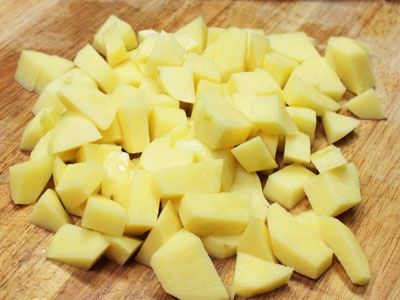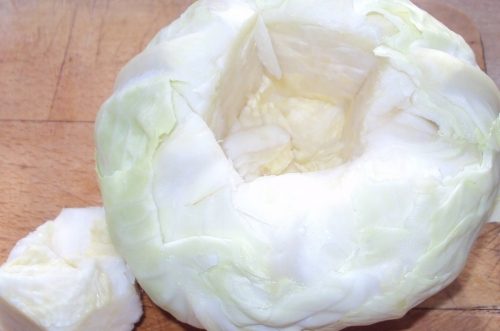Why is olive oil bitter? Which olive oil is better? How to choose non-bitter olive oil. Bitter olive oil
Extra Virgen olive oil can and must be bitter
Some housewives believe that bitterness is an indicator that olive oil has deteriorated over time or under the influence of external factors. In fact, this is not at all the case. Bitterness is an essential feature of Extra Virgen extra virgin olive oil.
We explain why the bitter taste in the taste of olive oil is a good sign and indicator of the quality of the product.
Why olive oil is bitter
Olive oil is produced from olives that have reached optimum maturity and collected from a healthy tree. At the same time, two different varieties of olive trees can produce fruits that will vary in aroma, color and, of course, taste. Olive oil, different in its characteristics, can be obtained even from olives of the same variety and crop, but of varying degrees of ripening.At the same time, premium olives have something in common - they are pleasantly bitter. Bitterness is an absolutely natural taste characteristic for olive oil. This is a guarantee of the quality of Extra Virgen extra virgin olive oil, which is considered the richest in composition and amazing in taste and aroma.
The degree of bitterness can be different. It is influenced by many different factors, including the variety of olives used during the spin cycle, soil conditions and weather conditions under which the crop matured. Depending on these characteristics, olive oil can have both pronounced bitterness and hardly perceptible.
How to evaluate bitterness
When bottling olive oil in bottles, it undergoes comprehensive laboratory testing. The oil is tested according to two parameters: its chemical composition and organoleptic parameters. The latter also includes the determination of the taste of olive oil. To do this, you need to taste it.During the tasting, experts determine the taste and aroma characteristic of each oil. The color of the oil, contrary to popular belief, does not affect its quality at all. That is why olive oil is tasted in glasses made of dark blue glass so that the color of the product does not mislead experts.
As a rule, tasters describe the taste of high-quality olive oil in terms of “balanced”, “saturated”, “round”, “oilseed”, “mature”, “spicy”, “bitter”, “sweet”. Sometimes more specific descriptions are used: “herbal”, “almond”, “apple” or “resembling green leaves”. Quality oil gradually opens in the mouth.
Who estimates the bitterness of oil
In European countries with strict regulations and requirements for the quality of olive oil, the quality of the product is evaluated by special officially accredited tasting commissions.Spain, a world leader in the production of high-quality olive oil, has developed a culture of production and consumption of this oil. Officially, the quality of the product in a sunny country is assessed by tasting commissions, but tasting itself as a process has ceased to be a formal procedure and has turned into fascinating entertainment. Real gourmets can visit a professional olive oil tasting, where they will be taught to “read” the taste and aroma of the product and talk a little more about its production.
Different tastes from ITLV
Under the ITLV brand, several oils of the first Extra Virgen cold pressed are combined at once, each of which has its own unique taste and aroma:Extra Virgen ITLV - the taste of this oil - is the result of a specially created blend of different varieties of olives. Therefore, this oil has a very soft, balanced taste and a pleasant aftertaste.
Extra Virgen Elegante is an olive oil from one variety of Arbekin olives. It is characterized by a soft, light and velvety taste with a touch of almond and hints of green apple. The oil has a pleasant enveloping finish.
Olive oil is a product that was discovered over 140 centuries ago. At the dawn of civilization, people knew that the olive tree and its products can work wonders. It perfectly saturates, serves as a component for many beauty recipes, heals and heals. The beauties of ancient Egypt, Greece used oils to make their skin and hair an object of admiration and seduction. They were used by the leading luminaries of science of those millennia, such as Hippocrates and Aristotle. But why is olive oil bitter? Does its taste differ from the one that was many thousands of years ago?
All the knowledge and popular advertising make many modern people think that it is time to change the usual vegetable oil from sunflower to a product from olives. Then the figure will regain its former harmony, skin elasticity, hair enviable shine, and the body heals. And this is all true.
The trend towards a healthy lifestyle and proper nutrition is becoming increasingly popular, and this is good news. And so you decided to change your diet and go to the store for the cherished expensive bottle. Arriving home, and having tried for the first time a spoonful of product, you have a shock, panic and one single question, is olive oil bitter ?! Moreover, bitterness is strongly felt, and you are sure that you got an expired and substandard product. What to do? Hurry to the store and scold the seller, pour out and forget about trying to eat right? Do not rush until you read the information below.
Types of Olive Oil
In order to understand the issue, you need to know about what species are, and there are three main.Virgin olive and Extra virgin olive oil
This olive oil is the best product since it is completely natural. All useful substances in it are stored as much as possible, and they are absorbed by our body by almost 100%. That is, all useful substances with daily use of the product in food will replenish the daily norm and heal the body, improve the external state and raise the body's defenses.
Products are squeezed out when using temperature, but it does not exceed 27 degrees mechanically. Virgin olive is not processed, does not clean, does not add any components, dyes, additives to it. This is a storehouse of good. But Virgin olive has its own varieties.
- Extra virgin olive oil is the best product you can find for health among vegetable oils. Oil is obtained after the first cold extraction of the best olives. Fruits have no defects, they are not spoiled, not frostbitten, not a scavenger. This is like an elixir that is used for healing and for eating fresh. The yield after spinning is minimal;
- Virgin olive oil - obtained after cold pressed fruits. It is also useful, but the components necessary for our body in it are less. The price of such oil will be lower. Acidity is higher - 2 grams per 100 grams of product. Such oil can be more often found on the market, since the first category is rare, high-quality and expensive;
- Ordinary virgin olive oil - the acidity of this product is even higher and amounts to 3 grams per 100 grams. This oil was obtained using biological reagents.
On a note! Why exactly Extra virgin olive oil is used for treatment. The fact is that this is the most natural product and it has a small acidity, which is equal to 0.8%. And healing oils should have this indicator up to 1%. They are not suitable for frying and other heat treatment of products.
The best oil is prepared under strict quality control. All indicators must comply with norms and standards, have certificates of conformity. It is very difficult to meet the real Extra virgin olive oil with low acidity. Such a product is obtained only by pressing the best fruits, but a little finished oil is obtained. It is marked Extra virgin.
But olives can still give a lot, and therefore they are poured with water and pressed again. Such oils are also useful, but all indicators will be more suitable for cooking than for use in treatment and cosmetology.
Rafined olive oil
This is a more traditional option. And all because we are used to using refined products. This category is just that. That is, it went through a series of treatments, after which the unpleasant odor was eliminated, bitterness for frying, heat treatment of products is the best option.
It is also worth noting that this category does not emit carcinogens, therefore it is useful to use it. Oil costs much less than the categories that have been described previously. For treatment, this option is not suitable, since there are fewer useful components in the product after undergoing a series of treatments. Refined oil is obtained after the second extraction of the fruit.
Important! When you go to the store, be sure to pay attention to the labeling and cost of the product, as well as acidity indicators. You should not buy the cheapest product, since there is a minimum of Extra virgin natural olive oil in it, the rest is not worth the wait for all the additives and benefits of the product.
Pomace olive oil
This is the third category, which has a quality lower than the previous two, and get it from the cake after pressing, from which the last drops of oil are squeezed. There are few of them and refined oil and other additives are added to the product. But again, there are two types of this product:
- Olive-pomace oil is just a mixture of oilcake and refined oil. But it can be bought for cooking products; oil does not form bitterness and burning during heat treatment;
- Refined olive-pomace oil is a product only from oilcake, and it is not worth buying for food, since its quality is the lowest and there will be no benefit.
On a note! Manufacturers put different markings. If you see the word Bio, then check the composition for acidity and you can safely buy this product, as these are the best oils that are prepared under strict control.
Bitter olive oil: is it worth it to worry about?
You bought or brought olive oil from sunny Italy, but it is unpleasant, so bitter that it perspires even in the throat. Have you been given a fake? Not at all. Yes, no matter how strange it may sound, but olive oil is bitter and this is normal.
Moreover, if the product has a specific bitterness, then you should rejoice, as you are holding real cold pressed olive oil in your hands. Look at the packaging and composition of the product. If the acidity is up to 1% and there are markings that we described to you above, then this product is healing. No need to fry on it. This is for salads, dressings, fresh consumption.
If you have already begun to cook, then wait for unpleasant bitterness in the finished dish is also not worth it. The food will be tasty, only many useful properties will be lost. Therefore, for frying, stewing, take refined oil, and then you will not worry about the bitter aftertaste.
On a note! If you ever have to try olives, not from a can in a marinade, but fresh from a tree, then you will find that they have a bitter, tart taste. Of course, oil that was obtained only by cold pressing will preserve this bitterness, and you must understand that this is normal and good.
But to use the product with bitterness is best immediately. That is, you should not store the bottle for special occasions, or as a present for the best of times. Oil will benefit only the first time after opening the bottle. At this moment, it really can work wonders and improve your body, making it attractive in appearance.
Now you know that real olive oil is bitter, and you can safely use the product and start eating properly.
Humanity has known olive oil since antiquity. It is extracted by squeezing the fruits of European olive. Among connoisseurs, this oil is called "liquid gold" for an abundance of nutrients, vitamins, antioxidants and healthy fats. Olive oil is actively used in cosmetology. But the main area of \u200b\u200bits use is cooking. Oil is added to salads, put in the basis of sauces. Having bought a bottle of olive oil in the store, you can be disappointed by tasting and feeling that the olive oil is bitter.
The answer to the questions whether it is possible to consume such a product, should olive oil be bitter, is it normal or not, and why does it sometimes happen, depends on a number of reasons: variety and method of extraction, time of harvesting and the area in which it is collected. Many types of products offered have a natural bitter and burning taste.
In contact with
Quality olive oil costs a lot of money. Buying it, I want to get a really high-quality product. When purchasing goods of the same brand or of the same type, you will notice that in different batches the oil has a different flavor. The first thought that arises is why olive oil is bitter - one of the bottles bought is counterfeit. But real olive oil is easy to distinguish from fakes.
Check it out is simple. It is necessary to put a small amount in the refrigerator and allow to cool for several hours. After a while, natural oil thickens. Light flakes will appear in it. These are solidified wax particles (simple fats), which covered the olive shell with a thin protective layer.
Do not confuse these flakes with saturated fatty acids, the presence of which in the composition of olive oil is minimized. They solidify at room temperature, as can be seen with margarine, and are not good for the body. Wax does not bring in itself neither benefit nor harm and is safe for health.
There are no general criteria and standards that determine the taste of olive oil and determine whether olive oil should be bitter. It is bitter and may taste just fresh green olives or resemble green apples, almonds, spicy herbs and so on.

Olive oil can be of different shades: darker or lighter
Almost all types of olive oil have a bitterness, which is pronounced or slightly noticeable on the tongue. There are several reasons for the fact that in different batches the oil differs in the degree of bitterness and astringency.
One of the factors is the country of production:
- Spain (production leader);
- Italy;
- Greece;
- Tunisia;
- Turkey.
The list is not exhaustive. Each of these countries has its own climate and soil composition, which determines the diversity of taste. Oil squeezed within the same country, but from trees grown in different provinces, will also be different. Even the oil squeezed from trees located at different ends of the same olive grove can differ in taste and affects whether olive oil is bitter.
The second reason is the variety of wood. There are a huge number of them. Different types of oil trees, for example:
- minerva;
- picual;
- calamate;
- okhiblanka;
- leccino, and many others.
The tree variety also provides a variety of flavors of olive oil.
 The taste, astringency and degree of bitterness depend on the time at which the crop is harvested. Harvest Time:
The taste, astringency and degree of bitterness depend on the time at which the crop is harvested. Harvest Time:
- In early September, the collection of still very green olives begins, in which there is little oil. After pressing such berries, there is a feeling of bitterness, astringency and a slight burning sensation on the palate. The color of this product is bright green. Such oil is most appreciated.
- In October - November, the collection of raw materials continues. Berries become more ripe. The color of the oil becomes more yellow, and the bitterness becomes lighter.
- In December and January, berry picking continues. These are already ripe olives. They are rich in fat and from them squeeze yellow oil, which has a mild flavor. From the overripe olives lying on the ground, the darkest oil is obtained, which has a sweetish aftertaste.
The third reason is the method of oil production. The berry is picked by hand. Trees are not fertilized or treated with chemicals. Bones are removed from the fruits and olive juice is extracted from the pulp by cold pressing. It is defended and separated from the water, collecting oil from the surface. The output is a truly natural product with minimal processing. Each manufacturer has its own secrets and technologies, which directly affects the taste.
What taste should the first cold pressed product have?
Olive oil is a valuable source of unsaturated fats. It contains oleic and linoleic acid, phytosterols, vitamins K and E, chromium, squalene and many other compounds. It has antioxidant properties, and is very valuable to the body.
What taste should the first cold pressed oil have and why it is bitter is explained by the following. During the production process, olives are almost not processed - only washing, settling, separation from water and filtration. Therefore, this oil preserves the taste of olives as much as possible. The berries themselves, and especially the bones, are bitter and tart. This answers the question whether olive oil should be bitter or not. Organoleptic assessment or examination is carried out by professionals.
 The technique for tasting olive oil is simple:
The technique for tasting olive oil is simple:
- It is poured into a glass and heated in the palm of your hand.
- Cover the container with oil with the other palm. After a while, the oil acquires body temperature.
- Opening a glass, you need to inhale the aroma. This will open the whole bouquet of smells. First of all, the oil should smell like olives.
- Then a sip of oil is taken into the mouth and held in the mouth. Over time, taste buds will feel the bitterness and astringency of the oil.
- Then they swallow the oil. And burning and pinching should be felt in the larynx.
- If the taster tested all these emotions, and the aftertaste was pleasant, then this oil sample is of high quality.
Tasters distinguish about 70 terms that describe the taste of the first cold pressed oil. These are shades of apple, and aromas of spices, and herbs. And also: hay, lemon, tomatoes, pepper, sorrel, almonds, etc. Based on the foregoing, we can conclude that real olive oil is necessarily bitter. You can safely add it to food and use it for cosmetic procedures. and.
If bitter - is it normal?
Quality olive oil must be bitter. This means that it:
- natural and unrefined, did not undergo filtration and deodorization, was made from high-quality olives and did not lose any substances useful to the body during processing ();
- fresher and first pressed;
- concentrated (not diluted).
You can draw an analogy by comparing "fresh" with juice. Fresh will be more tart and bitter compared to juice due to the naturalness of the ingredients and its richness.
What to do, can I eat?
As stated above, the fact that olive oil is bitter is normal. You can use it and it is extremely useful. Like good wine, you need to get used to it and love it.
The saturation and astringency of taste will slightly decrease a couple of weeks after opening the bottle.
If it doesn’t work out, consider what you can do if olive oil is bitter, so as not to “spoil” the dishes with a bitter taste
- you can use a mixture of two oils - bitter olive and another type of oil (rapeseed, cotton, corn,). This will help to “dilute” the bitterness;
- mix with finely chopped garlic, add a couple of branches of aromatic herbs. For example, basil and rosemary. Let it brew, then use in appetizers, sauces and salads. And you can, like Italians, dunk bread in such a mixture;
- use for cosmetic purposes.

Ciabatta goes well with olive oil
Can I use it if it's rancid?
It also happens that over time, olive oil changes its taste for the worse, it becomes bitter and has lost a pleasant aroma (rancid). Such oil has deteriorated.
It is necessary to understand why olive oil is bitter and whether it can be consumed. To distinguish rancid oil from natural bitterness, a small sip should be taken. Hold it in your mouth. Then listen to the taste sensations. If the initial bitterness does not reveal the astringent taste of olives and a slight hint of spices, and you feel musty, the product is spoiled. An unpleasant aftertaste remains in the mouth.
The reason why olive oil is bitter in taste could be the expired shelf life, which, in accordance with the requirements of GOST and international standards, is indicated on the package.
When buying, you should also pay attention to the date of bottling. If it exceeds 6 months, the oil may be stagnant.
Another reason could be a violation of storage conditions. In order not to spoil the product, you should adhere to the following rules:
- Keep away from sunlight. The best packaging option for today is a dark glass bottle. She does not pass sunshine which destroy useful components of oil;
- It is necessary to close the lid tightly to prevent the ingress of oxygen into the container and prevent the oxidation process;
- Store at temperatures below 30 degrees Celsius. Often, housewives make a mistake - they put a bottle near the stove or microwave. This contributes to the heating of the oil and spoils its quality.
Useful video
Extra virgin olive oil production:
Conclusion
- If olive oil is bitter, this is natural.
- A quality product has a bitter taste. It indicates the freshness and concentration of nutrients.
- To distinguish from spoiled olive oil, you should listen to the aftertaste.
I always use olive oil. Mainly for the preparation of salads. Recently I bought a bottle of olive oil, the price was higher than usual, it seduced me. I decided that it was probably better in quality. Shelf life also looked normal. I came home, opened the bottle and tried.
She was extremely shocked. It was bitter and very unpleasant in taste, tightening in the throat. What to do? Go to the store again to make a complaint? She asked a question to her friend, and she replies that her son has been in Italy for a long time and probably knows what to do.
It turned out that this olive oil is of high quality and depends on the type of olives used to produce the oil. Interestingly, it is now also recognized that the bitter the taste of olive oil, the more it contains polyphenols.
Polyphenols protect cells and bodies with chemicals from damage caused by free radicals, and possibly neutralize substances that play an important role in the development of cancer. In addition, they retain oil longer.
 Olive oil should be kept away from heat and light. Cold will not spoil the oil, although this can lead to partial hardening. A sealed bottle can stand for a long time, up to 18 months, but use open should not be stretched for too long.
Olive oil should be kept away from heat and light. Cold will not spoil the oil, although this can lead to partial hardening. A sealed bottle can stand for a long time, up to 18 months, but use open should not be stretched for too long.
It is best to purchase olive oil in tinted glass bottles as a way to protect the contents from light.
My favorite recipe: crush garlic in olive oil and use as a seasoning for bread. The perfect aperitif!
For quick and tasty pasta, finely chopped carrots, peppers and tomatoes are fried in olive oil, with garlic, pepper and salt. Cook the spaghetti and mix in the vegetables, making sure to take all the oil from the pan. This is an easy enough recipe to allow yourself to enjoy it!
 Have you ever had to wonder what to do with a bottle of olive oil that turned out to be bitter? But it is not cheap. I want to provide some useful tips that will help you save money in an era of difficult economic conditions.
Have you ever had to wonder what to do with a bottle of olive oil that turned out to be bitter? But it is not cheap. I want to provide some useful tips that will help you save money in an era of difficult economic conditions.
First of all, we need to find out why olive oil is bitter. Of course, I’m not talking about the soft bitterness of olive oil, but about the obvious bitterness that prevents us from eating food.
Olive oil should be stored in a dark and cool place. Exposure to heat and light will in turn lead to rancidity.
Users should always be sure that the bottle is sealed tightly to limit exposure to air. As I mentioned Italian olive oil, it is best to store in a dark glass dish. When buying olive oil I try to avoid the oil contained in bottles in plastic or clear glass bottles.
Olive oil will also become rancid over time, although recently bought, ask the store about their storage system, it is possible that the fault lies with them. Contacting a trading company with a polite letter may give you a free fresh bottle of olive oil or two.
Now that we know a little about the cause of bitterness, it's time to turn to the possibility of using bitter or rancid olive oil.
1. Use olive oil to lubricate the hinges of a creaky door or cabinet. Do you know that the door creaks just when you are trying quietly on tiptoe to leave the child’s room, or to enter the house unnoticed?
Take the olive oil and apply it to the loops with a cotton cloth. Store oil with tools or detergents. Do not forget to make a mark so that you do not mistakenly use it in the kitchen.
2. Use oil to make candles. If the smell doesn't bother you too much, you can use olive oil for holiday candles, Saturday candles, or for any other purpose. Olive oil is a safe and effective remedy for burns.
3. Use it for diesel engines. Diesel engines can be converted to run on olive oil, among other means. However, do not try to do this at home without consulting experts in the field.
4. Use it to soften rough skin or lips, saving on all other supermarket cosmetic products.
5. A home remedy for earache: warm up a little olive oil, dip a cotton swab in it and carefully put it in the patient’s ear.
 There are many ways to save and now is the time to read the topic. Do not throw away your olive oil, which for some reason has become bitter.
There are many ways to save and now is the time to read the topic. Do not throw away your olive oil, which for some reason has become bitter.
Good olive oil should not be bitter. Perhaps this is a low-grade oil or was in unsuitable storage conditions. In itself, olive oil has a somewhat specific taste, I would even say, for an amateur. It may seem a little peppered if you try it from a spoon without vegetables. But, in the composition of salads, there should not be any bitterness.
I brought the best olive oils from Tunisia, Greece and Spain.
Why is olive oil bitter?
Recently I came across some GOST with a description of olive and sunflower oil. It has been written that olive oil can indeed be bitter. Naturally, if it is unrefined. If refined olive oil is bitter or the bitterness characteristic of rancid oil is bitter, then it is better not to eat it. But for kindling the stove will go well.
Unrefined olive oil may be bitter.
The reasons why olive oil is bitter.
Any resident of the country where such oil is produced will say - this is normal))
Don’t worry, you bought a normal Extra Virgin oil, which can and should be bitter. It’s not even bitter, but the throat tears a little. Extra virgin olive oil is often bitter. This means only one thing - a quality oil has been purchased, which has still retained its beneficial properties.
The best and most useful oil is considered to be Extra Virgin Olive Oil. Naturally, it is not fried on it, it is not subjected to heat treatment. They are seasoned with salads and hot dishes, on the basis of which they make various sauces and seasonings. This oil always has a rich taste and aroma, as well as low acidity (not more than 1%), compared with another grade of oil, which is not at all bitter, but has a high acidity (1.5% and higher).
If Pure Olive Oil is written on the bottle, then it is already possible to cook on such oil, and it, as a rule, is not bitter. Although in many countries where connoisseurs of olive oil live, this is not eaten.
Over time, the oil loses its beneficial properties, and its acidity increases. But bitterness disappears.
Why in the morning there is bitterness in the mouth - www.site/all_question / wayoflive / zdorove / 2013 / November / 58234/175880
Comments
I agree. I myself am a lover of olive oil and I buy Extra Virgin, because it has many useful substances. Good olive oil is always bitter, so the author of the question bought quality oil. Other olive oil, not Extra Virgin, will not be bitter. Probably Extra Virgin oil was bought for the first time, so there was a suspicion that it was spoiled. I strongly disagree with the first answer.
